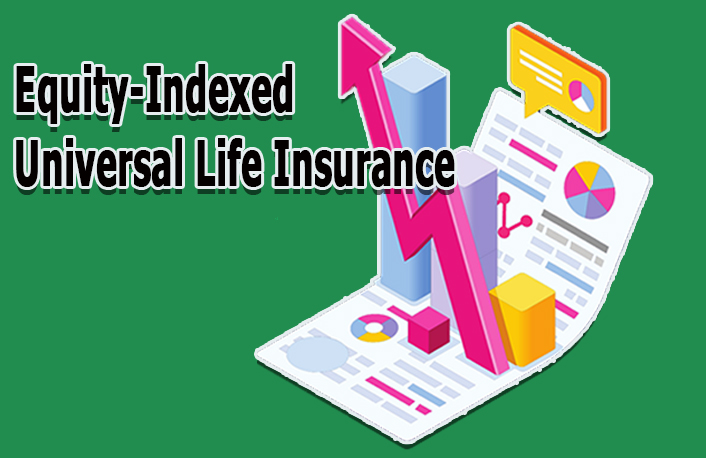Equity-indexed universal life insurance is a more complex form of permanent life insurance that binds its accumulation to a stock market index. Prospective investors often want guidance on how this policy works before executing it.

Just like every universal life insurance policy, equity-indexed coverage accumulates cash-value which can be withdrawn or borrowed by the policyholder. Also, it can be invested and used to pay the increased cost of insurance. It can be used to remove out-of-pocket premiums if the cash value surpasses the cost of insurance.
How Equity-Indexed Universal Life Insurance Works
Eequity-indexed universal life insurance allows policyholders to add their cash value to an equity index account, unlike variable universal life insurance which allows policyholders to invest part of their cash value into a compass of funds and stocks with several risk profiles. This account pays interest based on a market index without investing the cash value in the market. If the market index increases, the tax-deferred cash value of your life insurance policy increases. However, policyholders do not need to select one account to deposit the cash value accumulation.
Advantages and Disadvantages of Equity-Indexed Universal Life Insurance
Equity-indexed universal life insurance provides benefits similar to variable universal life insurance without the risk of holding stock market positions. For instance, the cash value of this insurance will not drop if the market drops, instead, it will not rise. However, the policy’s cash value can be reduced if premium payments exceed interest, while the participation rate stands at 100%.
This means the policy’s cash value will grow slower than that of the overall market. Moreover, these life insurance are a form of modern life insurance and a policy drive that is difficult to understand. To make this easier, investors should mention their special needs and insurability when deciding whether or not to purchase equity-indexed life insurance.
Is Equity-Indexed Universal Life Insurance Right for Me?
The following are some cases where you may need to consider an equity-indexed universal life insurance policy:
- You Have a Controlled Risk Tolerance: If you want more rewards without facing much risk like a variable life policy, equity-indexed universal life coverage may be the best for you.
- You Want Flexibility: This universal life insurance allows you to customize your premiums as necessary and pay premiums using your cash value. This creates additional flexibility with your budget.
- You are Amplifying your retirement savings: If you have taken out other tax-advantaged retirement options, this universal life insurance policy can offer additional tax-deferred investment opportunities while offering coverage to your dependents.
- You Want to Leave a Bigger Inheritance: The bigger your death benefit and index-based cash value, the bigger the inheritance you can leave for your dependents.
- You Trust in Your Investing Knowledge: These life insurance policies are more hands-on and they come with additional risks. For this reason, may work better if you prefer a hands-on approach and you trust more in management investments.
Alternative of Equity-Indexed Universal Life Insurance
If equity-indexed life insurance doesn’t seem like the best choice for you, there are many other options you can consider:
Term life insurance
Term life insurance is a short-term policy with a duration of ten to thirty years. If you want to keep your coverage after the policy term has expired, you’ll need to either renew it or get a new one. However, since term life insurance frequently provides a higher death benefit for cheaper premiums, it’s a very affordable policy. For this reason, if you want the maximum coverage for your money, getting this coverage might be the right one.
Whole life insurance
Compared to equity-indexed universal life insurance, whole life insurance costs less and has a lifetime duration. The cash value is protected from changes in the stock market or the economy by growing at a set, guaranteed rate. The cash value of the policy cannot be used to pay premiums. However, you may borrow from and withdraw from it. Moreover, this policy is suitable for those seeking straightforward and reliable cash-value life insurance.
Universal life insurance
The same fixed cash value growth and lifetime coverage are provided by universal life insurance as by whole life insurance. However, premiums can also be paid with cash value. You can also change your death benefit and premiums as necessary.
Final expense insurance
Final expense insurance is an affordable whole-life policy that pays for burial and medical costs. It does not require a medical exam and offers competitive premiums, lifetime coverage, a smaller death benefit, and a fixed, guaranteed cash value.
With equity-indexed life insurance, some policyholders may be able to take advantage of active opportunities to increase their cash value more quickly. For policyholders who would rather have guaranteed returns and a hands-off approach, this policy might not work as well due to its increased complexity.

